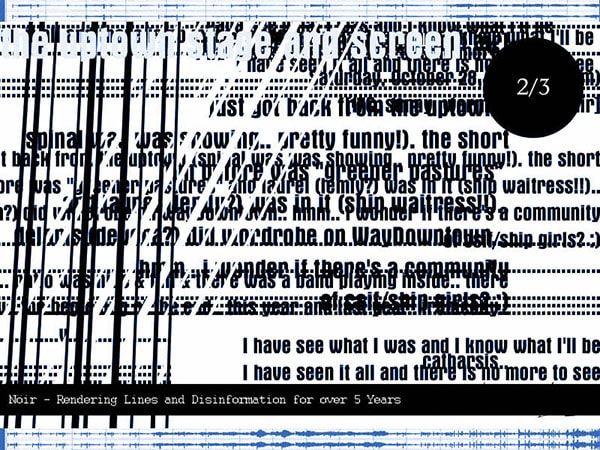
We are not in a military conflict, nor even a cold war, but there is a profusion of so-called disinformation wars. Fake news –stories that are purposely fabricated– and its dissemination is part of this. The new Spanish Security Strategy identifies online ‘influence and disinformation’ activities as a new threat to national security. This disinformation capability is not only produced by Russia or on Russian territory, it is also part and parcel of jihadist terrorism. But in the face of these disinformation attacks –which have been waged in the US, France and Germany and now in the debate surrounding Catalonia, among others– Western countries, both individually and jointly, are in a position of weakness, since they lack the necessary instruments to defend themselves. First among these is trust.
The issue here is the spreading of fake news by conventional and social media, not the way Russian hackers stole campaign information from the Democrats in the most recent US presidential election, and then made use of it. The latter comes clearly under the ambit of cybersecurity; likewise, the way the US National Security Agency monitors foreign individuals and governments, the collecting of secret information by companies and states, and the cyber-attacks against critical infrastructure. News manipulation and disinformation is quite distinct from this, whether the product of algorithms (bots) designed for such purposes or of people dedicated to these tasks. The security of the Internet of things is not the same as that of the Internet of ideas. And if the West were at war, it would be able to respond with weapons similar to the enemy’s, as it has done in the past with other instruments. But we are not at war, even if all this turns out to be part of the theory of the Russian hybrid war, as Mira Milosevich-Juaristi has ably explained in referring to the ‘combination’. The theory of inoculation –using disinformation to combat disinformation– does not work in peacetime. One of the strengths of the West is its media freedom, even if one of its greatest weaknesses is its citizens’ loss of trust in quality media outlets. The upshot is that the conflict is asymmetrical: open societies pitted against more closed and controlled ones. Their capacity (whoever they may be) to influence us is greater than ours to influence them.
It is owing to the internet and social media that we live in information bubbles, in echo chambers. The fact that people isolate themselves within these bubbles and receive only opinions that fit their ideology or prejudices nurtures credulity and their vulnerability to manipulation, whether it emanates from within or beyond their countries’ borders, using manipulative media like the Russian RT, thereby achieving a greater impact. Social media are more permeable to undesirable and directed influence, increasingly accompanied by visual images, whether real or fake. This capacity is even greater given that lying has no cost on the social media; such media are now more prevalent than ever (44% of Americans rely on Facebook for their news), as well as a potential money-spinner: many fake news stories are certainly lucrative for their creators if they reach a wide-enough audience. The real impact of fake news is debatable, however. They may be effective, but not decisive. Nevertheless, what is undeniably true is that they stoke anger.
One line of defence against fake news stories consists of actively denouncing them. Russia and its Foreign Ministry are highly energetic in reporting what they deem to be fake Western news. The EU has a unit geared essentially towards Russia (East StratCom), but it is not enough. NATO’s Allied Transformation Command, based in Norfolk, Virginia, has developed new strategies in this regard, and by the end of 2018 is due to propose a Communications Strategy. The German Marshall Fund has launched an ‘Alliance for Securing Democracy’ with similar goals, among others. It is worth recalling that Alexander Hamilton was already warning about the need to protect the American electoral process from foreign interference in The Federalist Papers. Not everything is new, even if the instruments and the speed of operations may have changed. The age-old arts of deception have gone digital.
Disinformation needs to be tackled from below, by individual members of the public, by the social media companies themselves, like Facebook and Twitter, which have not yet managed to rise to the challenge, and by governments, despite their lack of credibility. It involves improving the culture of social networks and the security that is wanting in our societies, where everyone is competing for that scarce commodity that is users’ attention. It is a phenomenon that needs to be studied more on journalism training courses, and even at the level of basic education where future citizens –not simply users– may be taught to be prepared for such potential manipulation.
Another part of the answer is high-quality journalism. But such outlets, regardless of the platforms they use, suffer their own problems: lack of money (almost all are beset by crisis) and lack of credibility, fewer specialists, fewer correspondents, less capacity for investigative journalism and fact-checking, and less independence. In the US, according to Gallup, the number of Americans who trust the traditional mass media has declined from 72% in 1976 to 32% today (and only 14% among Republicans), something that emerges from a recent excellent analysis on the topic. For the time being Trump is winning the battle against the critical media in the US, with his permanent campaign to undermine what he calls the ‘liberal’ media –which he constantly accuses of spreading fake news– and manipulation by others such as Breitbart News and Cambridge Analytics. In Europe, some studies have suggested that young people’s mistrust of the media is only exceeded by the mistrust they harbour for big business and governments.
The debate about post-truth, fake news and manipulation favours the manipulators. Mistrust cannot simply be offset by more information. As the German philosopher of Korean extraction Byung-Chul Han says, ‘an accumulation of information cannot generate truth’. He adds that ‘transparency is only required as a matter of urgency in a society where trust no longer exists as a value’. In other words, our weakness resides in our own mistrust. And, as already pointed out, we find ourselves in a time of general distrust, distrust in the institutions and in the media, which is exactly what the manipulators are exploiting.


